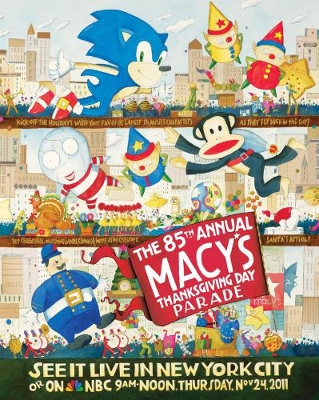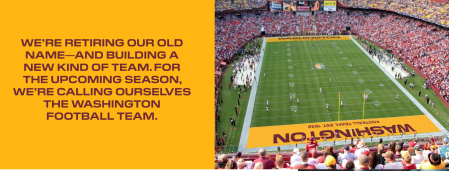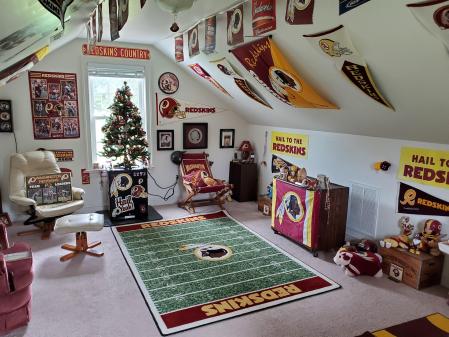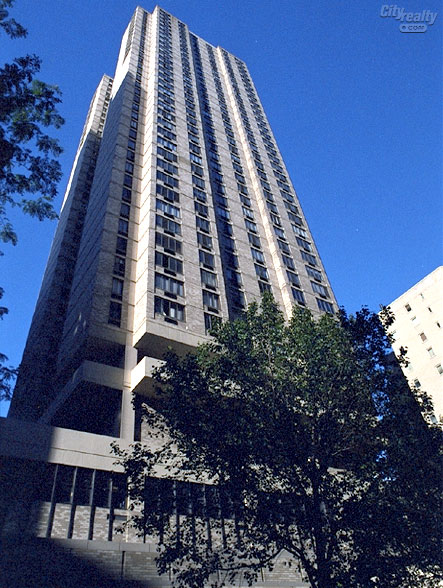 You can only truly appreciate your home through the eyes of visitors. Anybody who’s proud of the place where they live is aware of that. After a quarter century here, I have beheld most New York City landmarks either (1) as a visitor, or (2) by hosting visitors. But never have guests instructed me more joyously than they did for the 85th Annual Macy’s Thanksgiving Day Parade.
You can only truly appreciate your home through the eyes of visitors. Anybody who’s proud of the place where they live is aware of that. After a quarter century here, I have beheld most New York City landmarks either (1) as a visitor, or (2) by hosting visitors. But never have guests instructed me more joyously than they did for the 85th Annual Macy’s Thanksgiving Day Parade.
First, a little background. By the time I became sentient, back in Norfolk, Virginia, my family was already watching the Macy’s throwdown on this newfangled TV thing, toward which I was attracted with magnetic force. One year, 1958 or so, my mother – a real holiday-lover, but irritated by what must have been a stray ornament prematurely offered at a humble local mom-&-pop “five-and-dime” called Japha’s – pronounced, “No Christmas music in this house until we see Santa go by in the Macy’s parade!” I have observed her dictum unto this very day; I’m actually offended by the sound of traditional holiday tunes before about noonish on Thanksgiving Day. To me, they reek of callous, cynical marketing: thanks, Mom, for inspiring only a gentle neurosis, one that doesn’t really bother anyone else unless they’re in my audible complaint zone before the Macy’s Santa’s sleigh is safely up in da 34th Street hizzle. You have weeks to gorge yourself on holiday music: from that parade-ending point until the clock strikes twelve on New Year’s Eve. So enjoy yourself.
(I wrote a holiday radio spot back in the Eighties for a high-end shopping/office complex. The musical bed was “Easter Parade,” and the “spokesman” was the Easter Bunny. See, it may be the off-season, but he’s still here, man. He has a great big family so it really helps to get all his shopping done at one place, he can just hop in and out instead of fighting traffic at the mall, etc. Yes, cheesy, conceded, but it really stood out against all the other tiresome Yuletide clutter, the client was stoked because customers in the stores were telling his tenants how much they loved it, and it wound up winning an advertising award. Thanks again, Mom. You definitely inspired that bad boy.)
So naturally, upon moving to New York, where they stage the annual Macy’s clambake, I wanted to see the dang thing for myself, and one year, while our turkey was in the oven cooking away, we walked on over, through the park, to Central Park West. The crowd was enormous, festive, pumped. By the time we arrived, you couldn’t get anywhere near the street, so we watched through the trees at the edge of the park. We had to take the marching bands’ word for it – we could only hear them – but we had a good line of sight for some of the floats and all the giant balloons. And Santa was sitting high enough on his sleigh that we could see him go past. That meant it was OK to go back and slap on Nat King Cole (my favorite holiday album of them all) and let the Yuletide season begin.

Linda “watching” a marching band in one of our first Macy’s parades, c. 1990. How bout that hair? The background is the Dakota apartment building, where Yoko still lives.
There is a bit of cognitive dissonance involved, however. We live on the Upper East Side, across the park from the staging area where all the participants start parading. So when Santa sleighed past the top of the route, where we were, it would still take him a couple of hours to make his way down to the tv cameras at Macy’s on 34th, stopping every so often to let the cast of a new Broadway musical try to sell some tix. By the time we got back home, the NBC live broadcast still had maybe an hour or so left to go. Time travel! We could predict the future! Sweet!
We did this a few years until the novelty wore off, then quit for a while. Some years it can definitely get too cold/rainy/snowy to be much fun; the Macy’s Parade is held at the pleasure of Mother Nature. (Ever since a balloon knocked into a lamppost in 1997 and sent down debris that put one spectator into a coma, height and size restrictions have been strictly enforced: today’s balloons are smaller and lower to the ground, and parade honchos will even tank balloons altogether above a certain wind velocity.)

The view from the balcony on Central Park West on Thanksgiving Day 2007.
Much later, some good friends won a charity raffle prize allowing them to watch the parade from above, in a beautiful pre-war apartment on Central Park West, and they invited us along.

Our hosts: a family which is *tres groovy*.
It was a grand day, temperate, the leaf colors in Central Park just dazzling. There was a balcony from which we could see everything. In earlier times, we might have been closer to balloon eye level, but still: even though we were looking down, our view was absolutely unobstructed. What a parade. Magnificent! I didn’t think I’d ever get any closer. But I was dead wrong.

From this angle, Ronald McDonald looks like he might have had a couple too many Big Macs.
It takes something special like that privileged perch to make us drag butt over to CPW these days, and for Thanksgiving 2011, that something blew into town: my sister-in-law and her family from Jenks, Oklahoma. The parents and kids alike love New York (my niece’s email handle is “Broadway Bound”; she and her brother were both featured in a very credible high-school production of JOSEPH AND THE AMAZING TECHNICOLOR DREAMCOAT the following spring), and they were determined to do several things: celebrate her birthday, visit the 9/11 Memorial, hang with us for a while, and see the Macy’s parade in poison. They had researched the deal on the Web. Doing it right would require far more effort than Linda and I had made those first few years: we’d have to get up in the middle of the night and book it over to CPW in order to get a good spot. For days before the big event, I swore I wouldn’t go along.

Everybody except the chick in the baby-blue were Macy’s adventurers.
The night before, we had a fine birthday celebration feast at Carmine’s, a family-style Italian place on the Upper West Side, just a few blocks from a Macy’s tradition we’d never before sampled: you can watch them start to inflate the balloons. They’re on side streets next to the parade route, and there’s a pedestrian path for a couple hours where you can get really close and discover how monstrous these things actually are. (After everybody’s had the chance to gawk at ground level, they seal off the area again and get serious about puffing these godzillas to life, which takes much of the night. By now, they have it down to a science.)

Blowin’ ’em up the night before.
Something struck me during that walk-by, I’m not sure what, but I said, OK, I’ll be as silly as you are. And so it came to pass that everybody in the house except my wife, who needed to busy herself with a Thanksgiving dinner for six, greeted the holiday very early the next morning. 3 AM? 4? All I can tell you was that it was too early for city buses. We cabbed over and did some walking to find a spot; as you might expect, parade personnel take up a lot of room, so you can’t just stroll down any street you like, not even at four in the morning. We found one on 74th Street on the city side of CPW (in other words, we were looking across at the park, just as we had been on that nice balcony), and there was some construction at the building behind us, so the whole sidewalk wasn’t available, only two or three rows. There were people already there, with music-festival folding chairs, at streetside. But they were sitting down (grrr….we were envious!), so we again had a perfectly unobstructed view, only this time we were perhaps only ten yards away from the parade!
I don’t know how my bladder held out for all those hours, but I’m positive how my back did: I could shift my weight by leaning against the construction-site wood. That’s how we waited it out, for probably three to four hours. Across the street there were bleachers, but the fortunate folks who single-filed in just before parade time had reserved them somehow. Somebody said they were the families of Macy’s parade participants. Anyhow, they got to sit down too – but as we saw them take their places, our adrenalin started to pump: it’s happening real soon now! We had smartphone apps to give us all the info we required: which attraction was coming up next, etc. We didn’t need the NBC announcers: we were right there! And when the mighty procession finally began, after our hours-long effort, let me assure you that such ephemera as bladders and backs were soon forgotten.

It is ON, dudes!
We were as close to the balloons as we’d been the night before, only now they were in full floaty regalia. Bad-ass marching bands were now huge enough to overwhelm us. Yes, that’s Cee Lo Green, that’s Neil Diamond, we know because we’re near enough to see their faces! Heck, we can see the faces of every frickin person in the parade!

Ladies and gentlemen, Mister Neil Diamond!
I looked at the pre-teen girl in front of us. Her dad or gramp had jostled her awake even earlier than we’d managed, he’d brought the folding chairs, he knew exactly where to go, and she’d whiled away the hours talking to him and idly reading THE INVENTION OF HUGO CABRET, the illustrated source novel for Martin Scorsese’s film HUGO. She even wore the Chloe Grace Moretz beret; I wondered if she’d already seen the movie, as I had, because it hadn’t quite opened just yet. She might have discovered the cinematic magician Georges Melies that very day. Well, now the book was gone, she was on her feet, and the parade had swept her away.

A new balloon this year, designed by Tim Burton.
It’s hard to describe how jubilant, how innocent, how happy, the Macy’s Day Parade can make you feel. Writers are supposed to know how to describe stuff, but this was utterly beyond me. Perfectly normal Macy’s employees had come from all over the country to dress up in silly costumes (who knows how early they had to suit up this morning!) and march six miles in the cold for no more profound reason than to wish everybody a Happy Thanksgiving. (OK, also to try and encourage people to shop at Macy’s, but let’s be frank: if that were the only purpose, wouldn’t this be a serious case of overkill? Much easier to just sponsor a frickin NASCAR driver instead.)

Some Southern belles from somewhere. We were right glad to see ’em!
Or maybe you’re so hip that you’re immune to anything that’s irony-free. I certainly used to be. But when Santa rolled by, and we had a perfect look at him, I imagined everybody watching him on tv from far-off places like Norfolk, in far-off times like the late Fifties, and as far as I’m concerned, it’s the same Santa. The NYPD finally let us cross CPW after the sleigh swept by, and I looked north, away from the receding parade. Nothing but a blissed-out street, full of happy people, with no motorized vehicles in sight. The magic was already headed downtown toward 34th Street and the tv sets of an estimated 44 million people.

The big guy himself. Let the holiday music boom forth!
We all walked back across the park and later had, as Arlo says, a Thanksgiving dinner that couldn’t be beat. But first, I had DVRed the NBC coverage for the younger celebrants, and they watched it avidly. It was mostly sights they’d just experienced in person, somehow validated by being beamed “live” (remember the time displacement?) to the entire nation, but they still hadn’t seen everything. In a longstanding tradition, the parade broadcast helps promote the year’s new Broadway musicals, only they don’t force those supertalented gypsies to walk the whole parade route: just suit up by Macy’s and wait for your cue. Yet somehow those live-but-really-prerecorded tv images were able to rock the whole thing for our digital-age dude/ettes. When we first walked in, Linda asked, “Did you have fun?”, and after a pee prodigious enough to impress a newly-resuscitated Austin Powers, I allowed that yes, I really had.
On behalf and in loving memory of Betty Jean Luper Dupree, I now offer two thoughts:
1) No holiday music until you’ve seen Santa go by in the Macy’s parade!
2) Happy Thanksgiving to you, and to everyone you hold dear.





 Posted by Tom Dupree
Posted by Tom Dupree 







 You can only truly appreciate your home through the eyes of visitors. Anybody who’s proud of the place where they live is aware of that. After a quarter century here, I have beheld most New York City landmarks either (1) as a visitor, or (2) by hosting visitors. But never have guests instructed me more joyously than they did for the 85th Annual Macy’s Thanksgiving Day Parade.
You can only truly appreciate your home through the eyes of visitors. Anybody who’s proud of the place where they live is aware of that. After a quarter century here, I have beheld most New York City landmarks either (1) as a visitor, or (2) by hosting visitors. But never have guests instructed me more joyously than they did for the 85th Annual Macy’s Thanksgiving Day Parade.




















